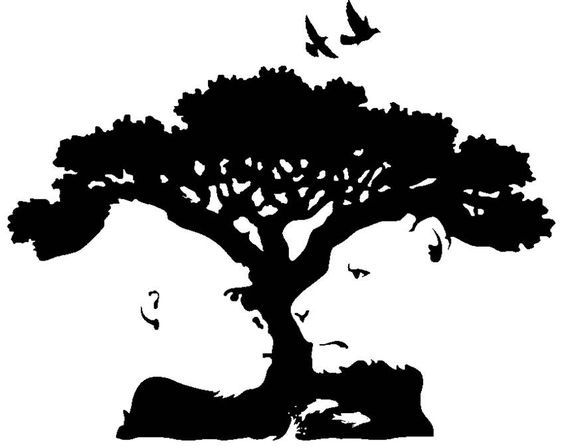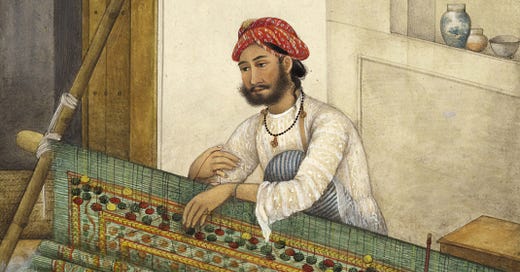
Photo by British Library on Unsplash
Continuing our exploration of worlds: what is to know a world and how does one go about it? Of which, we start with a particular question about knowledge:
What is it to know caste?
I don't mean the kind of knowledge that social scientists possess, arrived at by slicing and dicing the census upon which they find out that India has so many castes and so many jatis and here's the dominant caste in Marathwada and there's the dominant caste in Rayalaseema.
I mean the kind of knowledge we have as caste-bearers in the world. That’s caste-knowledge.
An analogy with language might be useful. We can study language as linguists, but we are all speakers of language as humans too. I may have no clue whether subjects precedes verbs in a Hindi sentence or come after, but when I speak Hindi as a native speaker, I speak grammatically correct sentences. That's how most of know language, i.e., language-knowledge.
Is Caste like Language?
Not exactly the same. Every human community has a language and unless you have a neural or muscular disorder, you speak the language of the environment in which you were born.
That's why linguists believe that language is an innate human capacity, i.e., hardwired into our genes
You can't say the same thing about caste. While every human community has hierarchy - we are all mammals - only India has developed an intricate, ‘legible’ system of social ordering. There's nothing quite like caste elsewhere.
By ‘legible’ I mean that the intricacies of caste are formally encoded - in texts, in village dispute resolutions, in political campaigns etc. Just as signatures and fingerprints make my identity legible; names, location and other clues make caste legible.
Perhaps caste is more like riding a bicycle or learning to read and write. Bicycles don't exist in every human community and not every person in communities with bicycles know how to ride them. At the same time, a normal child will quickly learn how to ride a bicycle and never unlearn the skill. The same with literacy. Both feel 'built in' without being encoded in our genes.
However, caste, like language and unlike bicycling, determines identity. If I ask you 'who are you?' an Indian is likely to answer (if not today, certainly a hundred years ago) with 'my caste is so and so' alongside 'I am a Tamilian.' Only professional bikers will say 'I am a bicyclist.' Therefore, to the extent that caste-knowledge is also identity-knowledge, it's more like language-knowledge than like bicycling-knowledge.
Knowing that, Knowing how, Knowing As
This is as good a time as any to introduce vocabulary about types of knowledge - bear with me for these distinctions are unavoidable and useful. I argued that caste-knowledge is like language-knowledge in some respects and bicycling-knowledge in other respects. While doing that, you might noticed this strange symbolism: X-knowledge.
Why write it that way and not 'knowledge of X'? That question possesses the keys to a new treasure trove.
Knowing That
In everyday language as well as in scientific discourse, when we say 'knowledge of X' we typically mean I am here, X is there and I know something about X. For example, the relationship between the earth and the sun. In a God's eye view of the planetary system, we see the earth in one place, the sun in another and ask ourselves: is the earth going around the sun or the other way around?
Knowledge of the solar system is a form of knowing that, where the abstract proposition about geocentrism or heliocentrism is compared with the actual state of affairs. How we compare the proposition with the actual state of affairs is a different matter. When it comes to the solar system, we conduct observations. In the case of moral principles, we might consult a sacred text.
However, none of these capture caste-knowledge, for no abstract proposition will tell you how to behave when faced with a member of another caste. In contrast, consider one of our favorite examples: riding a bicycle.
Knowhow
You can read as many books about bicycles as you want, but all that reading won't help you win the Tour de France. In order to learn how to ride a bicycle, you have to ride a bicycle, fall, ride again, fall again until you learn how to coordinate hand, leg and body position that both prevents you from falling and helps you move from A to B.
That's the essence of knowhow.
Our target, i.e., caste-knowledge is certainly not know-that; but it's also more than know-how, for it's tied to our identity, which is typically expressed as 'who I am' rather than 'what I do.' For this, I want to distinguish a new form of knowledge: Know-As.
Know As
Knowing Tamil and being a Tamilian are two aspects of the same thing:
One aspect is world-directed and emphasizes action with an external goal, know-how in the vocabulary we now possess. The world directed aspect of knowing Tamil helps me engage in Tamil conversations with other Tamil speakers. Note that the world here is a social world, not a world of dead matter.
One aspect is self-directed and emphasizes identity creation. The self-directed aspect of Tamil-knowledge constitutes a linguistic identity, one that might make me cry if I hear a particular phrase.
In other words, knowing-as simultaneously grasps the world and the self.
Note: It's the more fundamental than Knowing-that and Knowing-how but I won't go into that hierarchy of fundamental knowledge here.
Caste Cosiety
What is caste-knowledge? We saw that it's more than bicycle-knowledge, precisely in the additional aspect of identity formation. Which means that caste-knowledge is a form of knowing-as. But caste isn’t in my head, it’s always experienced with others. How can we encode that into knowing-as caste?
Is there a special form of knowing-as that involves the self, others and the world?
Cosiety
There’s a continuum between stable aspects of human nature and fads that come and go. At the one end is language, core portions of which are genetically encoded. At the other end are ephemeral forms of social learning, such as this summer’s fashions.
Caste and religion are probably in the middle: learned cognitive and social acts but with deep deployment of many neural networks.
Let me repeat: both caste and religion have a neural component and a social component. In fact the entire spectrum from language to fad is:
Whether hard wired like language or loose wired like fashion, all of these activities have some mental basis and some social basis.
What do I mean by that?
Even the most ephemeral sign system - wearing clothes with the Nike 'just do it' logo on them, for example, depend on our innate capacity to encode and decode signs. They are part of a semiotic capacity that humans have. We are not the only species to do so either.
At the same time, these sign systems are inherently social, which is to say they make sense only the presence - whether real or virtual - of others. If a tree falls in a forest without anyone hearing it, it does make a sound, but there's no 'just doing it' without people around to do it with.
So the entire continuum between language and fashion has at least a finger in the brain and at least a finger in society.
That's the regime that I call Cosiety, i.e., having both a cognitive and a social element.
Caste in Cosiety
With that thought, we can almost phone home with an answer to the question: is there something new to be said about caste? To cut a long story short:
Caste is Cosial. In fact, it's a cosial system
The answer I want to give today is: I don't have a new hypothesis about caste to share but we are likely to discover oodles of new hypotheses about caste by wearing the cosial hat.
🎯 Cosiety
If you recall, we meandered into caste by asking: 'what did Stuffistan do to India?', which led us to probe our history in the form of 'what was India before Stuffistan?' Now that we have a fix on caste as a form of cosiality, we can fly a bit higher and see if we can discern the influence of Stuffistan on cosiety.
Spoiler alert for next time
1. Stuffistan is a manifestion of cybernetic capitalism.
2. Cybernetic capitalism targets the cosial.
Or as the Borg empire says: resistance is futile.
Final note

The term ‘society’ arose from humble beginnings in the 15th century when it meant a group or club, an association of people gathered for a specific purpose (a meaning that’s still kept alive in the names of professional associations such as “The American Mathematical Society”). From that it expanded forward to include the emerging complex ‘societies’ of Europe and then outward as well as backward to all human communities and in fact, to plenty of non-human communities. We don’t bat an eyelid when someone says ‘viruses plague bacterial societies.’
In short, the term ‘society’ captures external relations between humans, while the term ‘psychology’ or ‘mind’ typically captures the individual and the internal relations between the parts of the psyche or the mind, such as the relations between language and perception. The external relations can take one of two forms:
The noun form: a substance that glues a group of people (or animals) together, such as when we say ‘Indian Society.’ Sometimes the substance is assumed to have a life beyond its components, which is reflected in statements such as ‘the nation is greater than any one of us.’
The verb form denoting the connections people make with other people, but with any number of intermediaries such as tools, objects, animals etc. For example, when I am writing this essay, I am committing a social act that has an audience in the background. What’s social about it precisely the tacit connection to those who are reading these words.
For at least a hundred years if not more, ‘society’ has played two roles: ‘figure’ as well ‘ground.’ In its figural role, society is what we study (if you’re a scholar) and influence (if you’re a politician, activist or entrepreneur). In its ground role, society is the backdrop against which other things happen. So when we talk about the social production of knowledge, we imagine knowledge as the thing that’s being forged and society as the background in which that happens - so that knowledge is produced under specific capitalist conditions, which is why there’s enormous investment in curing first world diseases that impact ten thousand rich people and very little investment in infectious diseases that sicken millions.
It’s time to expand that figure-ground dyad, to arrange the individual and the collective in one cosial continuum. Therefore:
Replace society with cosiety, both in its noun and its verb forms
Replace mind with cosiety in its noun and verb forms
The division between the individual and the collective never made sense to me, but it’s particularly inappropriate now, when we know that bacteria can travel from gut to gut, influencing our moods and social networks can target specific emotions. Time to declare the borders open.
There’s just one continuum from the neural to the social. That’s just for starters: give it time and the continuum will go all the way from cells to continents. Cosiety zindabad!



